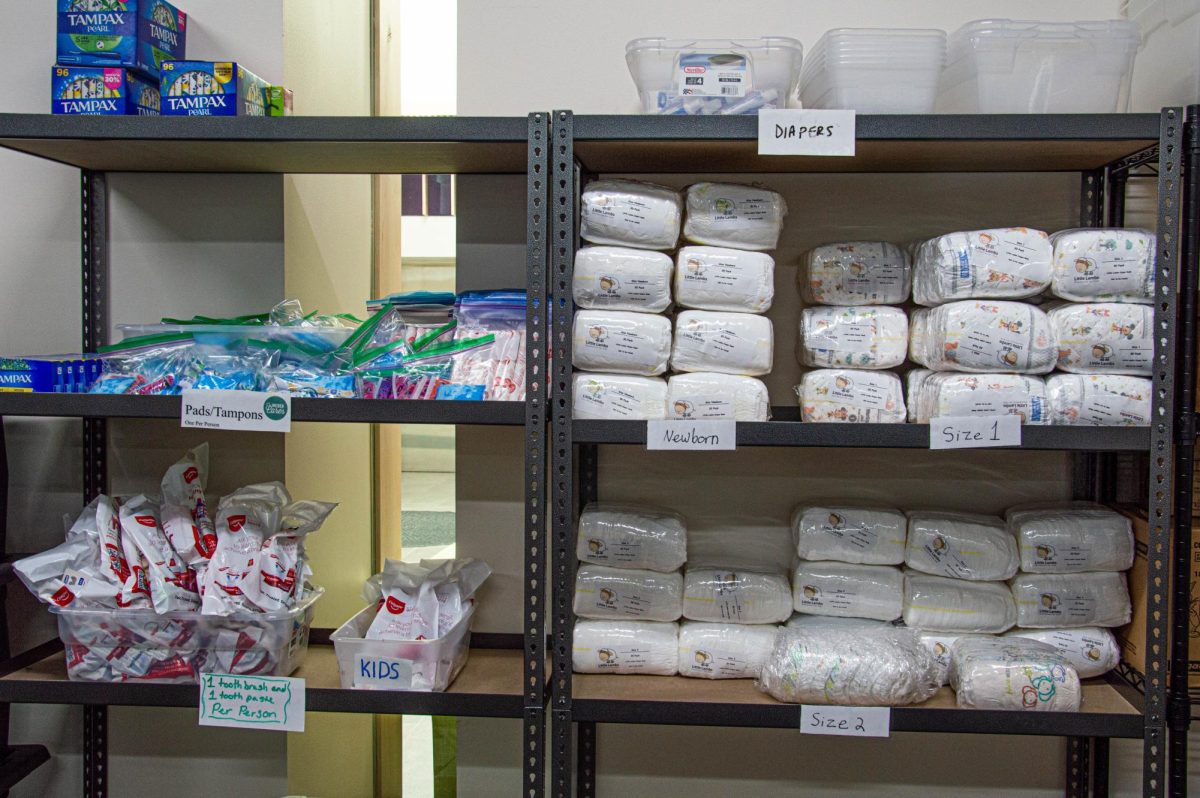Over the course of the COVID-19 pandemic, research has shown that many, including students, have struggled with big decisions and the uncertainty of the future, and it has largely impacted mental health.

Education has not been exempt from COVID-19 impact. According to a CNBC article in April 2021, college enrollment rates dropped by 25% due to the pandemic. Not only has the pandemic affected enrollment numbers, it has also impacted student mental health.
Statistical evidence provided by the American College Health Association and National College Health Assessment in 2019 shows that the two greatest academic impacts are stress and anxiety. Stress is normal for college students, and learning to manage stress is a crucial skill to learn and some students may need extra support to do that.

Utah is not immune to the mental health epidemic. In fact, Utah is falling behind in the race to combat the crisis. A report released by the Kem C. Garden Policy Institute at the University of Utah in August 2019 found that “Utah ranks last in the country when it comes to mental health.”
In April 2021, Boston College published research in regards to pandemic-related mental health crisis and found “during the first 9 months of the pandemic, Americans reported rates of depression and anxiety six times higher than in 2019.”
Several other sources, including the CDC, Washington Post, ABC News and peer reviewed journals, confirmed the rise of mental illness during the pandemic.
Mental health has a significant influence on the success of students. A study done by the National Alliance on Mental Illness found that “64% dropped out because of mental illness. Of those 64%, 45% did not seek help on campus before dropping out.”
Providing students with resources for mental health management, stress relief and overall wellness can help prevent dropping out and encourage degree completion.
Students should know what their school offers and utilize the services to their benefit. The two largest resources for mental health at Weber State are the Student Wellness Center and the Counseling & Psychological Services Center.

The Wellness Center is located in room 210 on the second floor of the Wildcat Center, the building just south of Stewart Library. Although they do accept drop-ins, the best way to get in contact with them is via email studentwellness@weber.edu.
The Wellness Center is a great jumping off point. Whether they help the student directly, or refer the student to a department best suited for their needs, student wellness is always the main focus. “There is more than one path to wellness,” Rochelle Creager, center coordinator, said.
The center provides an eight-element wellness wheel, which includes emotional, social, physical, spiritual, financial, environmental, occupational and intellectual wellness.
“We work the wheel into everything,” Creagar said. “When we do presentations about stress I ask students, ‘which part of the wheel does stress fit into?’ All of them.”
Stress can be caused by any element of a student’s life and is a major point of mental health. By using the wheel, students can take a more holistic approach to their mental health and wellness.
“We want to help students to thrive in the broadest possible sense that we can,” Creager said.
Another tool the Wellness Center uses is wellness consultations. No two students are the same and each has their own needs.

“Even if I have two students who come in and say ‘I want to eat healthier and I want to exercise,’ they’re going to leave with different resources,” Creagar said.
In consultation, a staff member will sit down with a student and discuss their needs, help them make a plan, set goals and then follow up with the student.
“For a lot of students, I’ve noticed that, unfortunately, mental health still has a taboo,” Creagar said. “I met with a student recently who said, ‘My family was really against counseling. I know that I need it, but I haven’t been able to access it until I got here.’ So for a lot of people, we’re not quite at that point of saying I recognize this taboo and recognize how this taboo has influenced me, but maybe it’s influencing us in more subtle ways that we can’t see.”
The Wellness Center and the Counseling Center work together to provide the best service possible for students.
To make an appointment with the Counseling Center, students can call 801-626-6406. In addition to sessions with a counselor, the center has enhanced their online website and provided many tools for students. The program titled togetherall was created to provide students with 24/7 online peer support.
Those who use the program will be anonymous and can share feelings and get support from other students.

Through the Counseling Center, students may also join support groups for grief and loss, mindful meditation, LGBTQ and others. Therapy Assistance Online is a program for self-help modules for anxiety and depression that students can do from home. TAO can be accessed through the eWeber portal. The counseling center has also created a tab specifically for COVID-19 pandemic-related mental health: weber.edu/CounselingCenter/coronavirus.
Weber State students come from all walks of life. Some students live on campus, some are non-traditional students and some are online-only. Whatever the situation may be, these two centers have resources available to assist each with each student’s needs for mental health and overall wellness.



















